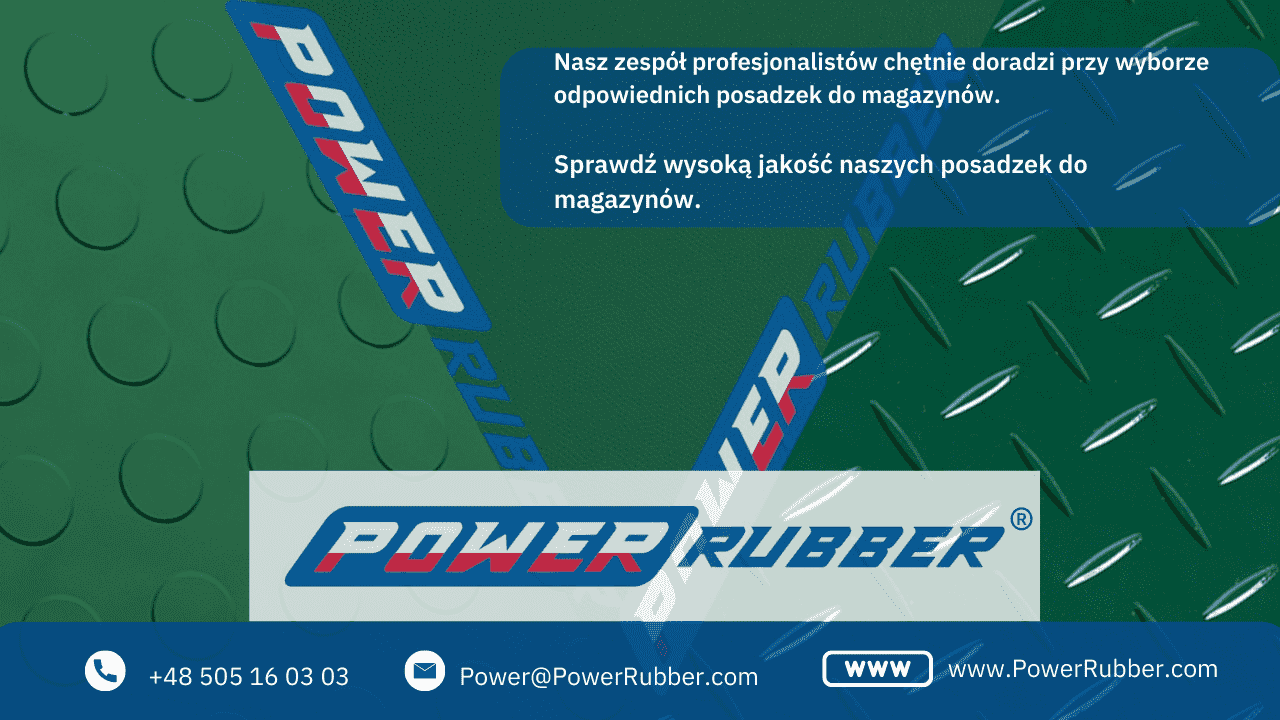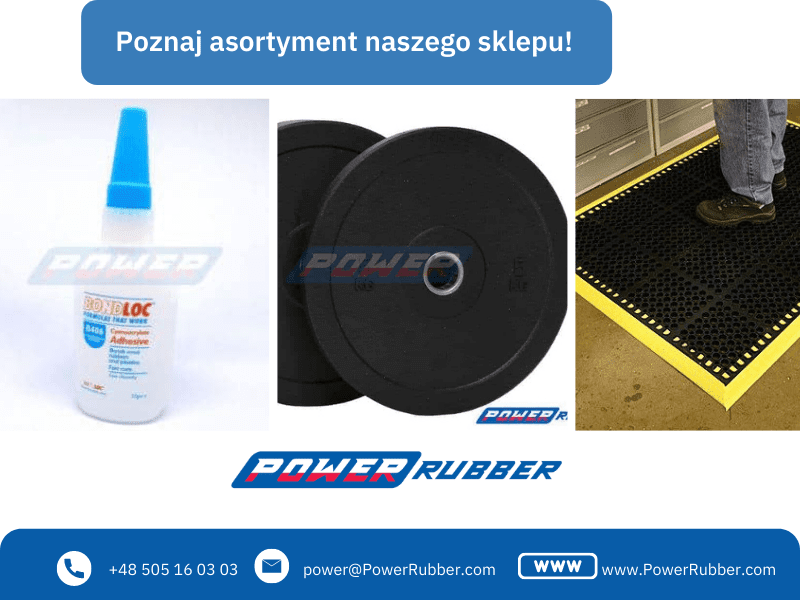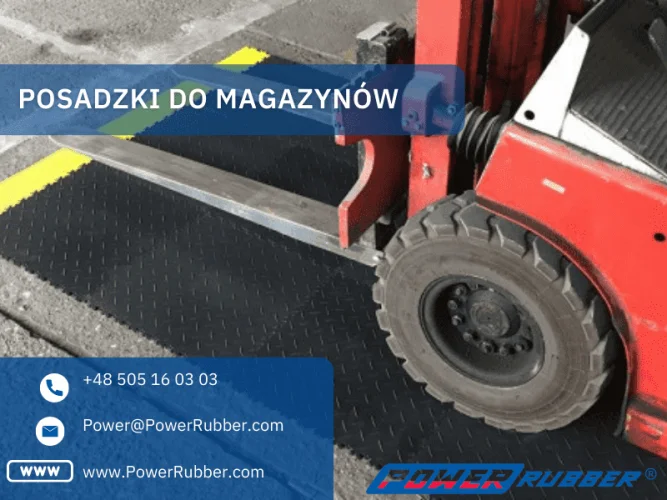Floors for warehouses
Industrial floors - where to start?
The pavement and its foundations are an extremely important load-bearing element that transfers loads from the floor surface down to the subsoil level. This is important both for dynamic loads related to the movement of machines and for static loads, usually generated only by standing rows of racks with goods on the shelves. A suitable surface must be properly leveled to ensure the proper functioning of the warehouse. This is a very important task that belongs to the competence of designers and construction contractors or employees for quality control and work safety. Only a properly checked concrete substrate can be laid. Before laying the floor, it is essential, preferably with the help of a professional, to check that the substrate and the supporting layer of concrete are sufficiently durable. Multiple points must be tested as there can be significant differences between places. This can happen even in a small space and if the points are very close to each other. The most important parameters of concrete, which will then ensure safe use of the floor by employees, include: compressive strength, tendency to slip and the degree of water absorption. The right substrate in a warehouse is actually a complex process and many layers. The floor should consist of a load-bearing layer, poured out of a highly compacted mixture, which will guarantee resistance to very high loads. It can consist of any kind of natural material or a special backfill. Subsequently, concrete in the form of plates is placed on the load-bearing layer, which ensures resistance to pressure. hThen the whole thing can be finished with a smooth surface and possibly reinforced with anti-slip PVC or other tiles.The importance of the right floor
Each warehouse is a place of special exploitation. When designing such an interior from scratch or adapting another hall, it is necessary to take care of appropriate materials that will ensure the safety of employees and transported goods. Moreover, it can also positively affect the efficiency of the material duct and the overall work efficiency. This is another important argument for the use of an appropriate, specialized floor for the warehouse. It must withstand very high static and dynamic loads. This is due, on the one hand, to heavy racks in the halls, and, on the other hand, to the frequent movement of handling equipment. It is worth spending the right amount of time thinking about the best choice. It's a good idea to make a list of the most important parameters to pay attention to before making a purchase in advance. All spaces intended for public or mass use must meet stringent safety rules. Due to the fact that these are often and intensively used places, they should be extremely solid, aesthetic, and preferably also non-slip. An additional advantage may also be easy to clean or resistance to certain substances, such as oils, greases, hot water or acids and bases. Many entrepreneurs decide to put a rubber surface on concrete. Such a floor in a warehouse will significantly increase the comfort in the workplace, and above all the safety of employees. The loads generated under the racks with products in the warehouse are extremely intense. These are concentrated on a small load area, even up to several tons (even 7 - 8 tons, although it is often much more) accumulated on a relatively small area of the rack column cross-section, which has an average of about 80 - 100 cm2. For this reason, the floors in warehouses must have a very high resistance to deformation so that they do not collapse in points under the weight of the shelves and racks. Another category of loads are the dynamic loads generated by handling equipment. In a classic warehouse, which holds many products in the smallest possible space, they move in a fixed order along relatively narrow aisles. This causes that the load on the floor is also accumulated in one place, and this time it is concentrated only on the surface of the load wheel. This pressure is often at the edge of the floor's strength, so you should always choose the best-quality tiles. It is worth adjusting the type and hardness of the substrate to the specifics of a given warehouse.What to look for when choosing a floor for a warehouse?
Industrial floors are a durable and reliable solution for every entrepreneur who has a warehouse, hall or other space. Due to their intended use, they differ in their properties, but everyone can choose a floor that suits their needs and the characteristics of the industry they are associated with. A completely different floor will be recommended for an office or study, for a warehouse, another for an open-air market. Another category are, of course, garages or sports facilities, where abrasion resistance is very important. Choose a rubber surface carefully for a warehouse or factory with a risk of grease contamination than for a pharmaceutical company, where there is a risk of contact with harsh chemicals, both acids and bases. Fortunately, today's manufacturers offer floors with various characteristics, so that everyone will find the right product for themselves.
When choosing floors for a warehouse, the basic factor is of course the material from which it is made. It is it that determines the mechanical resistance, susceptibility to abrasion, as well as reactivity with various substances and chemical compounds - acids, bases, crude oil, vegetable and animal oils, lubricants or boiling water or steam. Depending on the material, the floor will have a different tolerated working temperature and susceptibility to deformation. Another issue is anti-slip. In the case of a warehouse, where there is a risk of slippery surfaces, floors with an irregular texture are most often used. These are usually embossed, grooved rubber mats that provide greater stability. When choosing a floor, it is worth paying attention to the abrasion resistance. It is a parameter expressed on a Mohr scale from 0 to 10. 0 corresponds to very high abrasion, and 10 - extremely low. Depending on the working environment, you should choose the appropriate abrasion for yourself. Another equally important aspect is the resistance to deformation and compression. The optimal factor that will work in most warehouse halls is 600 - 700 kg / cm2. The floor should, above all, be durable and resistant to wear. Ruts are very likely to form over time due to the constant movement of the wheels and high pressure on the same road. Such recesses can reach a dangerous depth that can cause collisions and accidents, so it is important to regularly check the quality of the tiles used on the warehouse floor. A suitable floor is a very important part of the efficient operation of a warehouse, so it is not worth saving on it.
PVC tiles for stock
PVC is one of the most commonly used plastics in the industry. It is an organic chemical compound that is a polymerized long chain of vinyl chloride. It is widely used as a valuable raw material for the production of plastics. It is characterized by excellent plastic properties and high mechanical strength. It is also resistant to many solvents, thanks to which it has been widely used in many industries. It is also a very popular material used in warehouse flooring.
The floor in a warehouse is usually only planned at the very end. PVC is an extremely practical flooring material due to its ease of maintenance. You only need to spray them with water under pressure, which removes most of the dirt. The PVC floor for the warehouse is a universal solution for many industrial halls.
The floor in the warehouse - a guarantee of safety in the workplace
We cordially invite you to familiarize yourself with our wide offer, where there are various types of floors for the warehouse. Our experienced specialists will also be happy to help you choose the best solution to your individual needs and requirements of a specific space. We are sure that even the most demanding customers will find the right warehouse floor and other rubber accessories with us. PVC sheets are a very common element. They can be used for lining houses, kitchens, wholesalers, sports facilities, garages, large shopping malls, warehouses, schools and gyms. They have many advantages, but the most important are easy to clean and very high resistance to mechanical loads. Industrial floors made of PVC rubber are distinguished by the simplicity of application over the original surface. Working with them is extremely effective and usually does not require a team of professionals, because everything can be arranged easily by yourself or with a little help. It perfectly replaces costly solutions, which additionally consume a lot of time. They do not require significant effort or tools. You can easily adjust the size of the floor to the size of the warehouse or hall. PVC flooring is available in many designs and colors. Rough surfaces have greater anti-skid protection, so they are perfect for rooms where there is a risk of spillage of substances, which may endanger work safety. Flat, smooth tiles are used as a decorative element, often imitating other surfaces. The last category is convex PVC plates that perform similar functions to rough models. They are mainly used in garages and workshops, but can also be found in warehouses. A high-quality PVC floor is a solution that will significantly improve the comfort of work and a sense of security. They help to maintain all the required standards and standard health and safety requirements.
